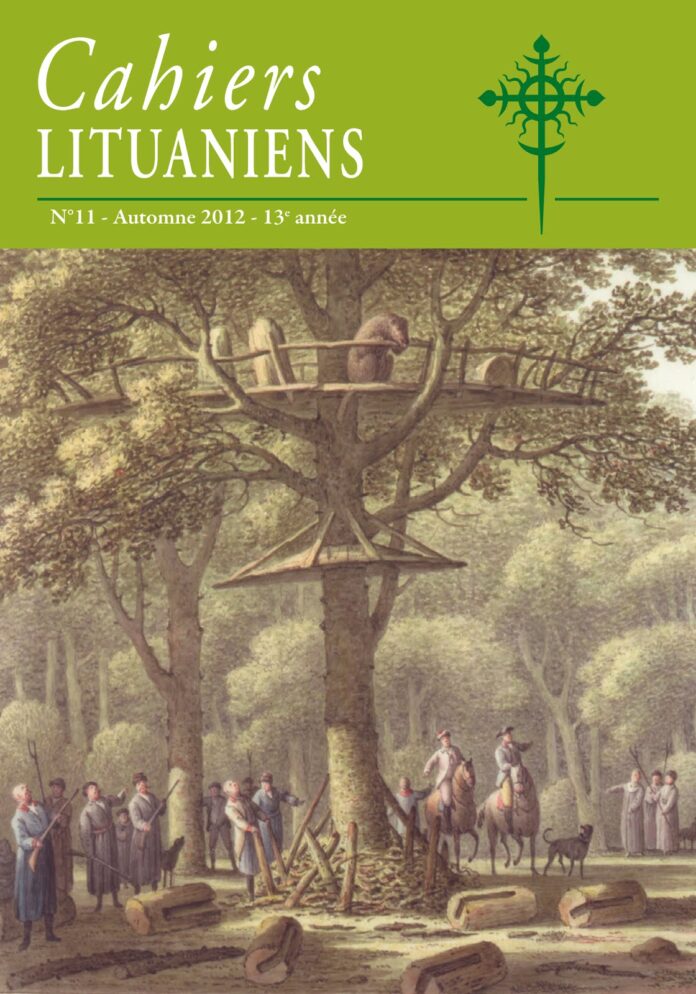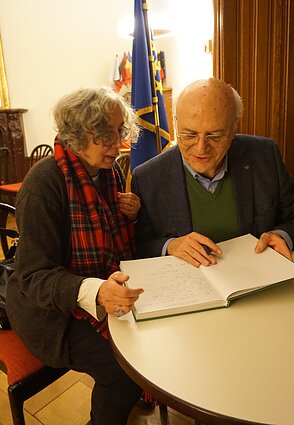
Philippe Edel of Strasbourg, France, is the head of the Alsace-Lithuania Association and publishes the only magazine about Lithuania in French. He fell in love with Lithuania during the country’s struggle for independence in the late 1980s. Philippe is married to a Lithuanian, Liudmila. Inspired by the events of January 13, 1991, in Lithuania, Edel gathered like-minded people and took to the streets of Strasbourg with posters reading “Freedom for Lithuania”. His initiative eventually gave birth to the Alsace-Lithuania Association, at first to provide humanitarian aid to Lithuania because there was a shortage of medicines. And it still exists today. As a president of the association, Philippe has been publishing Cahiers Lituaniens, the only magazine about Lithuania in French, for over 20 years. The magazine, published every autumn, includes texts not only by French and Lithuanian but also by Polish, German, Belgian, and Italian authors.

He first visited Lithuania in 1992. The trip was organized by Lithuanians, quite a few of whom had already come to Strasbourg to visit him. They knew that he was setting up an association, and friendly relations were established, which allowed him to establish contacts with other associations. He is also the vice president of the Franco-Lithuanian Association based in Paris.
Alsace is the easternmost region of France, and shares some history with Klaipėda. At the beginning of the 20th century, Strasbourg, like Klaipėda, was part of Germany.
He found some similarities between Lithuanian and the Alsace region. For example, in Alsace, until the 19th century, married women used to add the ending “-ine” to their surnames, just like in Lithuania. For example, if a husband is Pecquer, a wife is Pecquerine.
The publication Cahiers Lituaniens is meant for French speakers to know Lithuania better.
Only one-third of subscribers live in Alsace. Recently there was an article in the magazine on the application of the Napoleonic Code in Lithuania in the 19th century. Another interesting article was about Prosper Mérimée’s book Lokis. It is interesting that Mérimée, writing about Lithuania and its identity, made many mistakes and introduced a number of Russianisms. This is the only literary work in 19th-century France that mentions Lithuania, but there are inconsistencies in the story. There are five versions of the Lithuanian translation, and they are all different. A Lithuanian woman living in the Netherlands wrote an analysis, which interested both the French and the Lithuanians.
Writers for the magazine are mostly academics or researchers from Lithuanian institutes, who try to find unexpected links between Lithuania and France. There were three articles published about the French philosopher Jean-Paul Sartre’s trip to Lithuania. The first one was written by an eyewitness, and the French were very interested in it and especially in the picture of Sartre on the dunes of Nida. The French thought it was snow, not sand. The other two articles were critical – Sartre’s journey was presented as a spectacle prepared by the Communist authorities, where the writer played a prominent role. It was intended to show how the Baltic countries were supposedly living well and that the Soviet Union was not eliminating national groups, such as the Lithuanians.
Edel stressed that the magazine was always non-partisan. Professor Vytautas Landsbergis is the best-known Lithuanian political figure in France. For Edel, Landsbergis always embodied the fighting spirit of the Lithuanians.
Lithuania in the Soviet Union was the westernmost republic – one of the richest and most modern. When Lithuania joined the European Union, it was the most westernized of the former Soviet republics, even though the standard of living was much lower there. “I think it was not easy for Lithuanians to remain optimistic and integrate into this community, but you have succeeded, and the Westerners do not appreciate that enough. I regret that it is sometimes harder for Westerners, especially the French or the Germans, to understand how much you have had to endure and what a long way you have come.”





























